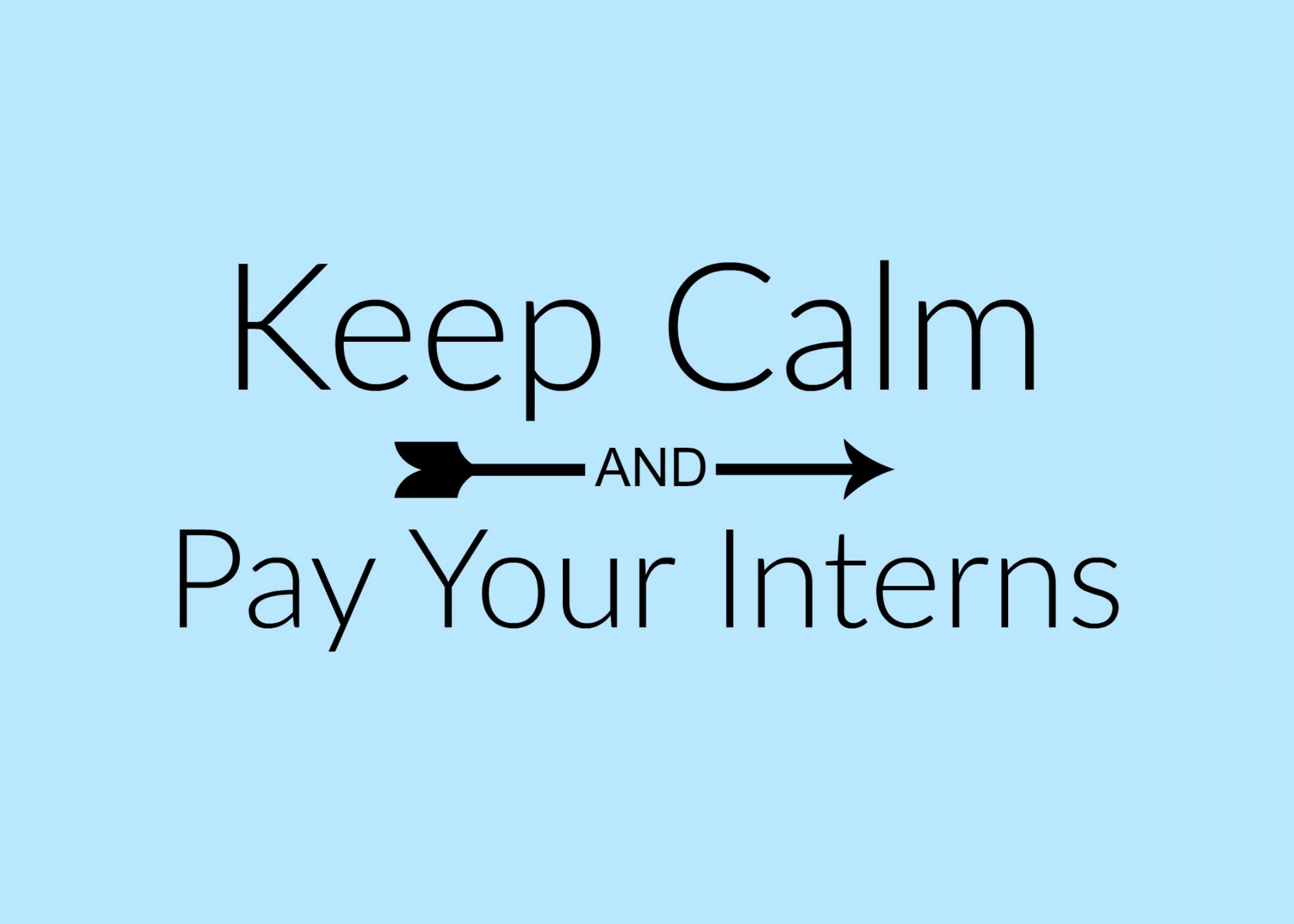
It may seem like a myth, but many employers in Philadelphia offer paid internships to young professionals and students. In fact, 4x3 is a signatory to the AIGA Philadelphia Paid Internship Pledge, an initiative encouraging local employers to offer fair compensation to design students.
In an effort to achieve equitable practices, 4x3 complies with the Fair Labor Standards Act. Within these standards set forth by the U.S. Department of Labor, students who accept an internship at a private sector business must receive a fair wage that meets the states’ minimum requirements.
The Tough Reality
I have friends that made coffee and assembled IKEA desks all in the name of internships. I once even saw a posting on Craigslist for an “icing intern” - the bakery literally wanted someone to put icing on cakes for no pay.
While I never had to suffer through menial or non-sensical tasks, I did have my fair share of "paid-in-experience" internships. During my senior year at college I turned down many great internships in the Philadelphia area - where I could have learned valueable industry experience and it would have looked amazing on my résumé - because the job was unpaid. (And, in many cases, I would've ended up losing money from travel or rent expenses.)
In this day and age, many employers exploit young students and recent graduates through unpaid internship programs by dangling future jobs, work experience, and résumé boosters in front of their faces. And like a horse following a carrot on a stick, many students fall into this trap because they don't know any better or because they simply cannot find a paid job within their field.
Legal Unpaid Internships
For a position to be legally unpaid, the U.S. Department of Labor states that a for-profit or private sector business must meet ALL of the following qualifications:
- The internship, even though it includes actual operation of the facilities of the employer, is similar to training which would be given in an educational environment;
- The internship experience is for the benefit of the intern;
- The intern does not displace regular employees, but works under close supervision of existing staff;
- The employer that provides the training derives no immediate advantage from the activities of the intern; and on occasion its operations may actually be impeded;
- The intern is not necessarily entitled to a job at the conclusion of the internship;
- The employer and the intern understand that the intern is not entitled to wages for the time spent in the internship. [source]
In many cases, internships do not fall anywhere near these categories. Interns are not glorified secretaries or coffee makers; if so, they would have applied for a job at a bank or a café.
How to Fight This Injustice
Businesses - big, small, private or public - can take a pledge to support the Fair Labor Standards Act.
But I would go farther than this, pledging not simply to meet the Labor Department's unpaid internship exemption criteria but to pay all working interns unless the job falls under volunteeer/non-profit work. Because outside of structured job-training programs or apprenticeships, there's no real argument for unpaid labor. Once businesses begin to pledge other companies will fall in line; until unpaid internships are the outliers within the world of business.
We at 4x3 are proud of our internship program, which pays a stipend to talented college students and recent design school graduates while giving them valuable real-world experience. Our interns have gone on to successful careers in design, landing jobs in Philaldelphia, New York, Washington D.C. and other locales.
Don't believe us? Read about our past intern: Shuchang.

